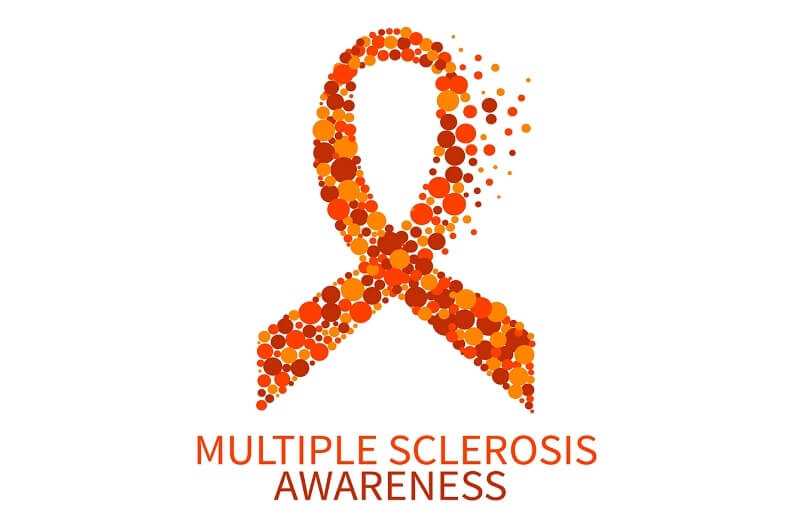Adults with MS and Their Parents

OST children and their parents look forward to the day when the children will be on their own. In our society, one of the major functions of the family is to prepare children to be responsible, independent, and self-supporting members of the community With the passage of time, the general expectation is that children will become heads of their own households, returning to the parental home for visits, celebrations, reunions, and eventually to provide help or care when their parents become elderly or ill.

Chronic illness and disability can interfere with these expectations. Progressive multiple sclerosis (MS) that is diagnosed during the teens or twenties might interfere with a child’s ability to leave home. Some young or middle-aged adults whose MS becomes disabling may find themselves needing parental help or support, and those who are most severely impaired may even return to the parental home because they can no longer afford or manage a place of their own. Because such a reversal of traditional roles and disruption of expected patterns is generally not anticipated, it is important to recognize the complex array of feelings—both positive and negative—that can arise in family members.
On the positive side, there is nothing more reassuring for an adult child with MS than to know that he or she is not alone. The comfort of having parents to turn to for assistance and emotional support is immeasurable. For parents, there can be joy and satisfaction— even a renewed sense of mission—in helping their children to remain as healthy, comfortable, and independent as they can possibly be.

Such a disruption can also create a variety of stresses for the entire family. This chapter describes some of the ways in which family members may react, and discusses possible strategies for coping with these unanticipated events.
Reactions of Adult Children with MS
Given that the expectation of most children growing up in our society is to become independent, the foremost reaction of disabled young adults is often an acute sense of loss over their own destinies. The onset of illness or disability can shatter the feelings of power and invulnerability that propel young people out into the world. When young adults are unable to move out of their parents’ home, their dreams are threatened, and they worry that they will never be able to experience the freedom and autonomy that usually come with adulthood.
Older adults who find themselves needing parental care or support after they have already been on their own for a while have an even more complicated adjustment to make. In addition to feeling a loss of control over their own lives, they may also experience a threat to the adult status that they worked so hard to reach and maintain. Those who have been self-supporting and self-directed for a number of years may find that returning to the care and/or support of their parents feels like a giant step backward, not only because their status as adults feels threatened, but also because of the loss of autonomy and privacy.

Once one’s parents have been asked for help, support (financial or otherwise), or advice, they may tend to slip back into their earlier parental patterns of wanting to guide, protect, or even control. This may be particularly true for the adult child who needs to move back into the parental home; the parents may revert to attitudes or behaviors that were well suited to their child’s teenage years, but feel overly intrusive or controlling for an adult who has long been independent. Accustomed to being able to come and go as they please, adult children may find themselves once again needing to live within their parents’ schedules and abide by their rules.The parent-child struggles of the past emerge again.
Even for adult children who maintain homes and families of their own, the need for parental help or support can sometimes cause tensions between and within the generations. It may be very difficult for parents and adult children to establish comfortable boundaries. A child may want his or her parents to provide help or advice when they are asked, but feel resentful of unsolicited advice or suggestions; parents who are concerned for their child’s welfare may find it difficult to keep their opinions to themselves.
Some parents, for example, may feel anxious about a son- or daughter-inlaw’s willingness or ability to provide sufficient care and emotional or financial support. This may lead the parents to become freer with their advice and opinions than they might otherwise have been, with the result that the son- or daughter-in-law feels pressured or inadequate. Marital tensions are not uncommon in this kind of situation. These types of tensions may be further complicated by disagreements over the care of grandchildren. Grandparents who are called upon to help with certain of the grandchildren’s needs may begin to try to control various aspects of their upbringing. This can cause the adult child with MS (and his or her spouse) to feel challenged or inadequate in his or her parenting efforts and resentful of the grandparents’ involvement.
Adult children who become dependent on their parents for one kind of support or another also worry about the impact of their disability on their parents’ lives. Knowing that their parents had their own plans and dreams for retirement, they often feel guilty over the disruption they may be causing. Adult children may also worry about their inability to provide the household, financial, or care giving assistance that elderly parents sometimes need. Who will be able to help their parents when and if the need arises? Will other siblings be asked to take on more than their share of the responsibilities? How will they feel about that? Will the parents need to look beyond the family for the help they require?
Disabled adults who return to their parents’ home also experience anxiety about the future. Needing to rely on elderly parents for support or care giving makes people feel very vulnerable. Who will be there to help me in the future? How will I have enough money to get the care I need? Will I be alone? Will I have to go into a nursing home? These feelings of anxiety and vulnerability can sometimes cause equally strong feelings of anger and resentment against the very people upon whom one is dependent. No one likes to feel vulnerable. The gradual buildup of these complicated emotions can stress even the most comfortable and loving parent-child relationships.
Reactions of Parents
No matter how old a child is when he or she becomes disabled, mothers and fathers experience a complex array of feelings ranging from love, concern, and anxiety, to guilt, bitterness, and resentment. Even in parents whose children are fully-grown and independent, the onset of illness and disability can easily rekindle earlier feelings of maternal or paternal protectiveness. They want to keep their child safe from harm and do whatever they can to ensure that he or she will be all right. Watching their child cope with a progressive disease can be a very painful experience for parents, their inability to protect and defend the child causing them to feel helpless, frustrated, and often guilt-ridden. Knowing that genetic susceptibility is a factor in MS, some parents also worry that they somehow caused their child to become disabled and wonder what they could have done to prevent it.

Parents may find themselves, in their middle or later years, providing some combination of living quarters, financial support, physical care, or emotional support to an adult child whom they had once assumed would be independent and part of a family of his or her own. They may feel fortunate to be able to offer one or more of these types of support, while at the same time resenting the disruption of their well-deserved retirement, and worrying about the impact on their own health and financial security.
Parents may also feel resentment toward a child’s spouse who has left the marital relationship and “returned” the disabled spouse to the home and care of the parents; although a spouse’s role can be ended, the parent feels like a parent forever. This change is sometimes further complicated by grandchildren who, because of their parent’s disabilities, may need more than the usual amount of grandparenting. In this situation the grandparents face the delicate challenge of finding a way to participate in the care and nur-turance of their grandchildren without overstepping the boundary between grandparent and parent.
Aging parents may suddenly find themselves concerned about the financial security of a child (and grandchildren) they had always assumed would be independent. The world of insurance, government subsidies, trusts, and taxes can be overwhelming to even the most financially astute. Parents, like everyone else, tend to put off thinking about money and the future simply because it is too stressful to do so. Fortunately, there are resources to help with the kind of financial planning that can protect the security of a disabled child and relieve some of this stress.
Recommendations
Talk to one another. It is important to get the feelings and concerns out on the table where you can figure out what to do about them. Family members are sometimes so concerned about hurting one another’s feelings that they say nothing at all. Feelings that go unspoken tend to build up, with the result that unidentified tensions pervade the family’s relationships and tempers begin to flare. Families who find it too difficult to start this kind of discussion may find that family counseling is an effective way to get the process started.
Negotiate solutions. Try to find solutions that are reasonable for all concerned. For this kind of negotiation to happen successfully, family members need to take the time to express their own needs and listen attentively to the needs of others.

Learn from others. Chapter events and support groups sponsored by the National MS Society, books and articles, and the Internet are all mechanisms for connecting with other families who are living with MS.They provide opportunities for families to learn from each other’s problem-solving efforts while simultaneously offering invaluable emotional support.
Deal with financial issues frankly and openly There is ample help available, from both professionals in the community and written materials, for families’ financial planning efforts. Financial worries can be a major source of family tension and upheaval. It is important to find ways to enhance each person’s financial security, and it is never too early to start this planning process.
Share the responsibilities. Adults sharing a home need to share responsibility for the care and management of that household. Except in the case of very extreme disability, every person can make some useful contribution. Divide responsibilities according to taste, time, and physical ability so that each adult can feel like an important member of the household. There will inevitably be differences of opinion about how various things should be done; these too can be negotiated with some mixture of tolerance, flexibility, and a sense of humor.
Share the care giving. Everyone can use some care giving, whether disabled or not. Each member of the family, whether elderly (and possibly disabled) or younger and disabled, needs the care and attention of others. Look for ways to give to one another so that each person can feel that he or she is on both the giving and receiving ends of a caring and supportive relationship.
Protect everyone’s privacy. Parents and children who are living together need to ensure that everyone has some time, space, activities, and relationships that are separate and theirs alone. Parents need time to themselves and with their friends, and so do adult children. Too much togetherness eventually leads to conflict and resentment. Even the most disabled person who requires a great deal of hands-on care and attention needs some private space and time.
There is no need to wait for a crisis before seeking help. Renegotiating the parent-child relationship is never an easy job. It usually requires a significant amount of adjustment on the part of everyone involved. Family members often feel that they should be able to manage these changes without any difficulty simply because they love one another. But it is precisely because family members love one another that the necessary communication and negotiation can become so difficult. When the diagnosis or progression of MS begins to alter the ongoing parent-child relationship, it may be helpful to sit down with a family therapist and talk about the feelings and questions that each family member has and the types of problems they anticipate. This type of discussion and joint problem solving can often resolve tensions before they turn into crises.
Make full use of available resources. Living with MS can be exhausting for everyone—including the person who has the disease and those who are helping with care and support.To ensure optimal health and well being for everyone in the family, take advantage of the various types of assistance options your community has to offer; no family needs to do this alone.




